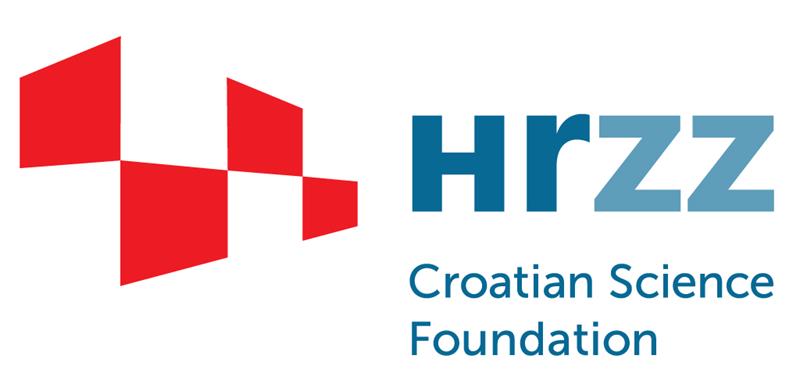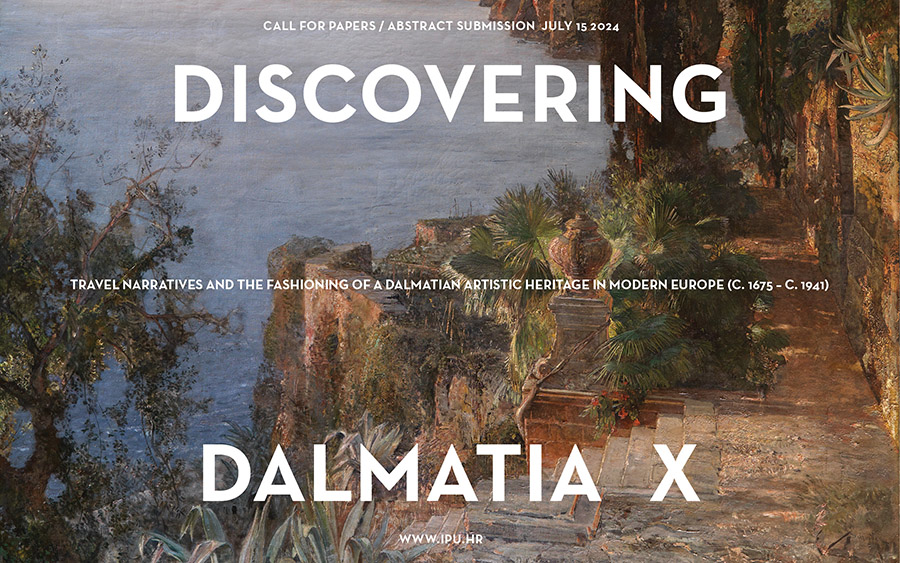Discovering Dalmatia X
The Institute of Art History – The Cvito Fisković Centre in Split calls for papers for an international scientific meeting organized as part of a week of events in scholarship and research
DISCOVERING DALMATIA X
TRAVEL NARRATIVES and the fashioning of a Dalmatian artistic heritage in modern Europe (c. 1675 – c. 1941)
Split City Museum – Old City Hall, Split, December 12 – 14, 2024.
CFP
-
Travel narratives encompass travel experiences presented in books, illustrated books, magazines, personal or official reports, diaries, letters, drawings, paintings, prints, and photographs. These are among the most frequently used sources in history, literature, art history, anthropology, and a range of other disciplines. But, due to their diversity and complexity as texts, travel narratives have tended to elude definition or easy categorisation across the spectrum of disciplines that draw on travel as valuable primary source materials.
Travelogues about Dalmatia, both visual and textual, have played a considerable role in the construction of its European identity, grounded in a curiosity about the region’s unique artistic heritage. The reasons for this lie with Dalmatia’s geographical position on the border between East and West, between the Christian and Islamic cultural worlds - the long history of which is richly recorded in the art and cultural expression of the region. The dichotomy of ‘East’ and ‘West’ in Dalmatia has meant a hybridisation of cultural, artistic, and geographical borders, all of which have made Dalmatia a particularly attractive destination for study trips from the early modern period.
The key period for the diffusion of travelogues about Dalmatia in Europe began in the late seventeenth century, and lasted until the mid-twentieth century. This era saw extraordinary popularisation and internationalisation of the travel genre in Europe, prior to the rise of organised tourism. This was likewise a crucial period for modern art history, during which processes of disciplinary transition and modernisation took place, both in Dalmatia and throughout the continent of Europe as a whole. Dalmatia was ‘exotic’ and yet simultaneously accessible to the classically-oriented Western European cultural imaginary.
With this conference, we aim to bring together historical and theoretical research on the travel genre as experiences transformed into textual and visual forms (irrespective of the geographical area), with a re-evaluation of the role of travel narratives in shaping the cultural identity of Dalmatia.
We, therefore, pose, two key questions:
- What does ‘travel narrative’ encompass?
- How did travelogues influence perceptions of Dalmatia’s artistic heritage in modern Europe?
Historians and theorists of art, architecture, urbanism, literature, anthropology, ethnology, and those engaged with travel narratives, are warmly invited to participate in scholarly presentations and discussion at the conference. We hope to contribute, on the one hand, to fostering an understanding of travel as an autonomous multidisciplinary and multimedia practice, and, on the other, to understanding the formation of perceptions of Dalmatia in the European imaginary. We are looking forward to considering a wide range of travel narratives for the conference - varying in genre characteristics, recording media, authors’ origins, and travel motives.
We invite professionals of various backgrounds, whose research addresses these topics to send a 250-word abstract and a short CV to: discoveringdalmatia@gmail.com.
The conference is organized as part of the Croatian Science Foundation project Travelogues Dalmatia IP-2022-10-8676.
Scientific Committee
Basile Baudez (Princeton University, Department of Art and Archaeology)
Joško Belamarić (Institute of Art History – Cvito Fisković Centre Split)
Mateo Bratanić (University of Zadar, Department of History)
Iain Gordon Brown (Honorary Fellow, National Library of Scotland)
Hrvoje Gržina (Croatian State Archives)
Katrina O’Loughlin (Brunel University London)
Cvijeta Pavlović (University of Zagreb, Faculty of Humanities and Social Sciences, Department of Comparative Literature)
Frances Sands (Sir John Soane’s Museum)
Marko Špikić (University of Zagreb, Faculty of Humanities and Social Sciences, Department of Art History)
Ana Šverko (Institute of Art History – Cvito Fisković Centre Split)
Elke Katharina Wittich (Leibniz Universität Hannover)
Organizing Committee
Joško Belamarić (Institute of Art History – Cvito Fisković Centre Split)
Tomislav Bosnić (Institute of Art History – Cvito Fisković Centre Split)
Mateo Bratanić (University of Zadar, Department of History)
Ana Ćurić (Institute of Art History)
Matko Matija Marušić (Institute of Art History)
Katrina O’Loughlin (Brunel University London)
Cvijeta Pavlović (University of Zagreb, Faculty of Humanities and Social Sciences)
Ana Šverko (Institute of Art History – Cvito Fisković Centre Split)
Registration
We welcome proposals for 20-minute papers. Proposals consisting of a 250-word abstract and a short CV in Croatian or English should be sent via email as a pdf attachment to discoveringdalmatia@gmail.com by 15 July, 2024.
Important dates
- Proposal submission deadline 15/07/2024
- Notification of acceptance 31/07/2024
- Conference day 12/12/2024
Important Information
We plan to enable participation at the conference both in person in Split and via online platforms to facilitate international involvement.
Registration will take place on the evening of the 11th of December, the closing address will take place on the 14th of December, and the hosts will organise coffee and refreshments for the conference participants during breaks.
No participation fee will be charged for this conference. The organisers do not cover travel and accommodation costs.
The organisers can help participants to find reasonably-priced accommodation in the historical city centre.
Papers and discussion will be conducted in English.
The duration of a spoken contribution should not exceed 20 minutes.
Presentations will be followed by discussions.
We propose to publish a collection of selected papers from the conference.

#TraveloguesDalmatia
